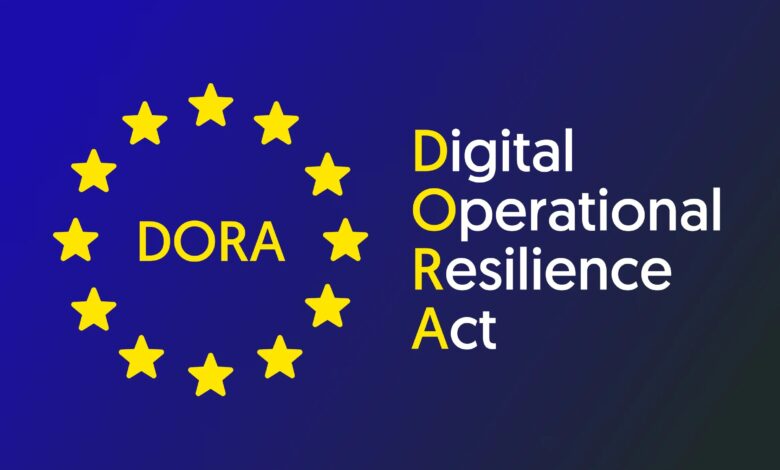
Enhanced Cybersecurity Measures for Cryptocurrency Firms in the EU
Cryptocurrency companies operating within the European Union are facing new requirements to strengthen their cybersecurity and risk management frameworks. This change comes as the EU enacts a new regulation aimed at bolstering the digital operational resilience of financial institutions and crypto enterprises across its member states.
Understanding the Digital Operational Resilience Act (DORA)
The introduction of the Digital Operational Resilience Act (DORA) marks a significant advancement in the EU’s approach to digital security. Officially effective from January 17, this regulatory framework offers a cohesive and unified set of guidelines designed to enhance the digital operational resilience of diverse financial and crypto entities within the EU. The regulation seeks to fill existing gaps and rectify inconsistencies in cybersecurity practices across the region.
DORA’s scope is comprehensive, extending beyond traditional financial entities like banks and insurance companies to include crypto-asset service providers, investment firms, and management companies. By doing so, it ensures a broad application of cybersecurity standards within the EU’s financial ecosystem.
Impact on Virtual Asset Service Providers (VASPs)
The introduction of DORA is expected to significantly influence the cybersecurity strategies of Virtual Asset Service Providers (VASPs) within the EU. Legal insights from JD Supra highlight that one of DORA’s mandates involves the development and evaluation of ICT third-party risk management strategies. This includes the requirement for specific contractual provisions with ICT service providers and maintaining a detailed registry of all existing contractual agreements.
This stipulation necessitates that VASPs maintain a comprehensive record of their agreements with third-party IT service providers, ensuring transparency and accountability. Mark Jennings, the head of Europe for the cryptocurrency exchange Gemini, emphasized the importance of DORA in fortifying the financial sector’s resilience against ICT-related threats. “In preparation for DORA, we have developed a Digital Operational Resilience Strategy, implemented an ICT risk management framework, established clear governance structures, and adopted best practices to ensure the continuity, security, and resilience of our services,” Jennings stated.
Extending the Markets in Crypto-Assets Regulation (MiCA)
DORA is seen as a complementary extension to the existing Markets in Crypto-Assets Regulation (MiCA). The objective is to bolster the resilience of crypto firms against disruptions and cyber threats, thereby safeguarding investors and enhancing market stability. Matt Sullivan, the deputy general counsel and head of Ireland at MoonPay, pointed out that DORA imposes additional requirements on MiCA-licensed crypto companies, underscoring the regulation’s broad scope.
Sullivan disclosed that MoonPay, which recently secured its MiCA license from the Dutch Authority for the Financial Market, is actively working towards DORA compliance. This proactive approach signifies the growing emphasis on regulatory adherence within the crypto industry.
Challenges for Smaller Service Providers
While DORA aims to standardize cybersecurity measures, it presents certain challenges, especially for smaller service providers and startups. Cathy Yoon, general counsel at Wormhole Foundation, expressed concerns about the potential difficulties faced by smaller entities in achieving DORA compliance. “Taking a proactive approach to security and building out cybersecurity measures in line with DORA may have significant implications for smaller service providers, particularly startups with limited capital,” Yoon noted.
In conclusion, the implementation of DORA represents a pivotal step in enhancing the cybersecurity landscape within the EU’s financial sector. As cryptocurrency firms and financial institutions align themselves with these new regulations, the broader objective is to establish a more secure and resilient digital financial ecosystem in the region.







